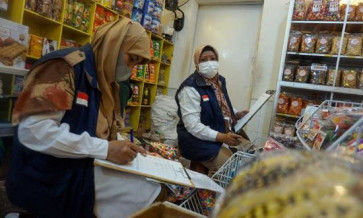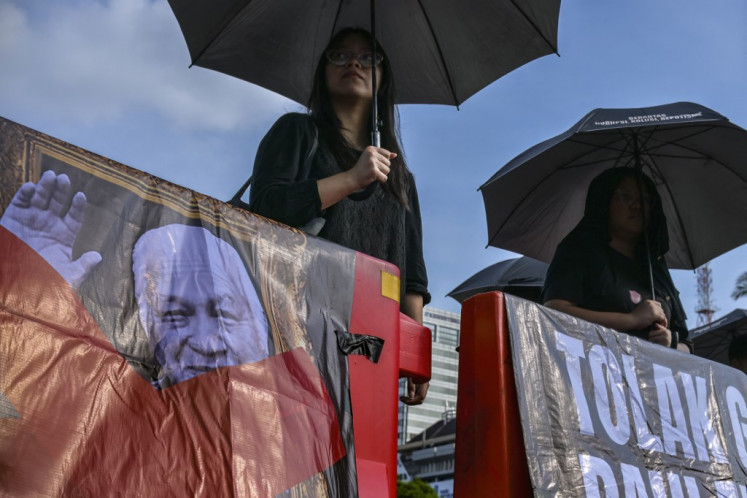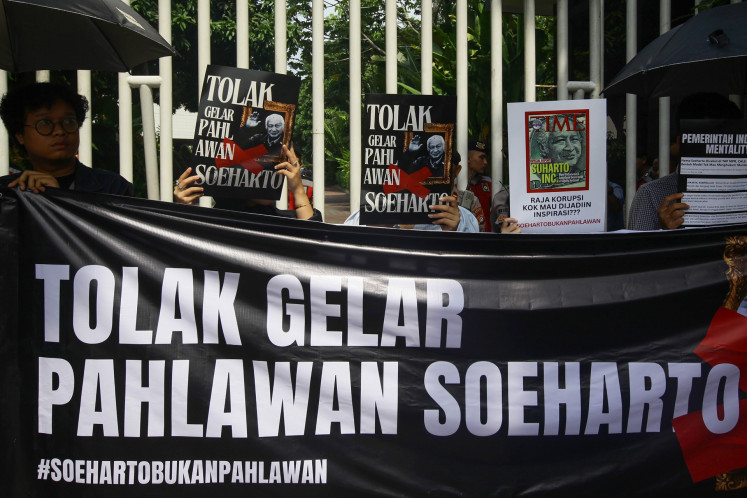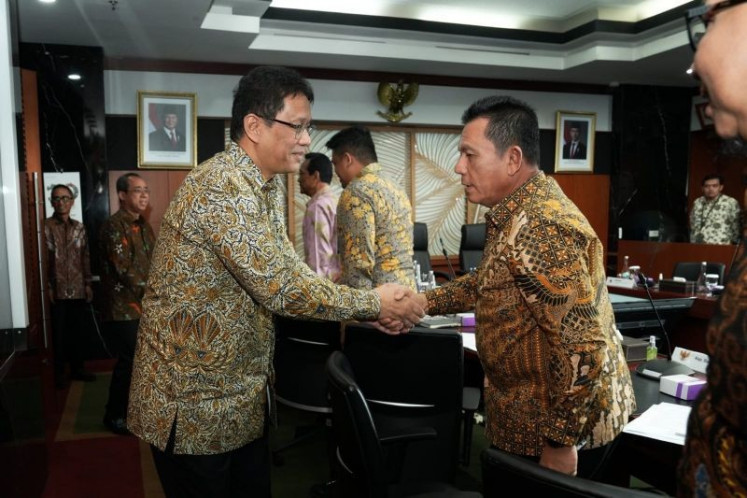Popular Reads
Top Results
Can't find what you're looking for?
View all search resultsPopular Reads
Top Results
Can't find what you're looking for?
View all search resultsThe UN and civil society's role in countering terrorism
Terrorism is a real threat and states must address it robustly and effectively, but civil society also has important roles to play particularly in raising awareness of the threat, addressing underlying conditions that breed terrorism, and ensuring respect for human rights
Change text size
Gift Premium Articles
to Anyone
T
errorism is a real threat and states must address it robustly and effectively, but civil society also has important roles to play particularly in raising awareness of the threat, addressing underlying conditions that breed terrorism, and ensuring respect for human rights.
It is therefore regrettable that some governments have denied these groups the political space, freedom, and information needed to engage effectively.
In some instances, "counterterrorism" has even been used as a pretense to crack down on civil society and to justify restrictions on freedom of association, speech, and assembly. Civil society organizations, for their part, have played a critical role in encouraging governments to calibrate their responses to terrorism to be effective against those who mean harm without eroding human rights and the rule of law.
In 2006, with that challenge in mind, the United Nations General Assembly unanimously agreed to a Global Counter-Terrorism Strategy that outlines a holistic approach to countering terrorism, which requires the collective effort of an array of stakeholders, including civil society, to implement.
Although commonly associated primarily with nongovernmental organizations and charities, civil society consists of a range of voluntary associations including political parties, trade unions and professional bodies, private foundations, educational and research institutions and think tanks, religious, faith based, and community based organizations, and women's, human rights, social and environmental groups.
The UN Strategy provides a framework and the opportunity for the broad spectrum of civil society in Southeast Asia to engage on counterterrorism-related issues - issues from which they have too often been excluded or on which they have been reluctant to engage - as well as the opportunity to further their own different objectives.
The Strategy is unprecedented among UN documents on counterterrorism in the role it ascribes civil society in countering terrorism, but also because it marked the first time that all UN member states agreed on a common approach to dealing with the threat.
As a unanimously agreed upon UN framework, the Strategy, therefore provides a powerful tool with which civil society in Southeast Asia can remind states of their obligations to combat terrorism, respect human rights, and address conditions conducive to the spread of terrorism.
The Strategy also effectively broadened the notion of "counterterrorism" to include not only tougher law enforcement and other security measures, but also measures to address what it calls "conditions conducive to the spread of terrorism," which include, among other things, prolonged unresolved conflicts, lack of rule of law, violations of human rights, and social, economic, and political marginalization.
Given the often unproductive emphasis that has been placed on *hard' security approaches to combating terrorism to date, the Strategy offers an opportunity to recalibrate those efforts and develop more balanced and hopefully more effective responses that involve civil society and seek to address these underlying conditions.
The Association of Southeast Asian Nations (ASEAN), in 2007, adopted its own Convention on Counter Terrorism that was later elaborated on in an ASEAN Comprehensive Plan of Action on Counter Terrorism both of which integrate many elements of the UN Strategy.
Together with the recent move away from the rhetoric of the "war on terror", the adoption of the UN Strategy (and the ASEAN counterterrorism framework) provides an opportunity for civil society in Southeast Asia to highlight its important contributions to furthering human security and to assert itself on a range of security related-issues which are too often considered the exclusive domain of states.
To realize the Strategy's potential and ensure that its implementation reflects Southeast Asian perspectives, civil society groups across Southeast Asia will need to embrace it and work to implement it along side governments and intergovernmental bodies.
Combating and preventing terrorism should be the responsibility of all sectors of society, not only of governments. A vibrant civil society can play a strategic role in protecting local communities, countering extremist ideologies, and dealing with political violence. Civil society gives a voice to different social groups and causes, which provides a channel of expression for marginalized groups and can promote a culture of tolerance and pluralism.
Civil society, and religious organizations in particular, can help promote dialogue, tolerance and understanding among civilizations, cultures, peoples, and religions. Civil society groups have important roles to play in activism, education, research, oversight, capacity building, and in ensuring that counterterrorism measures respect human rights and the rule of law. They can also help generate awareness of a range of Strategy-related issues and help build and maintain support for efforts to counter terrorism.
These activities have significant intrinsic benefits in their own right and need not be identified with "counterterrorism," but there needs to be a greater recognition and understanding within governments, the UN system, and civil society itself of the unique contribution that civil society makes with regard to long term efforts to address terrorism.
Governments and the United Nations need to better understand that a strong, independent, and lively civil society is in itself is an essential ingredient not only for democratic governance and sustainable development, but also for countering and preventing terrorism over the long term.










